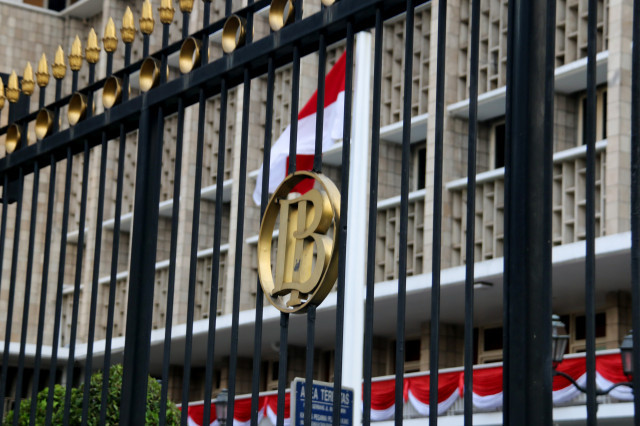Popular Reads
Top Results
Can't find what you're looking for?
View all search resultsPopular Reads
Top Results
Can't find what you're looking for?
View all search resultsBank Indonesia in talks with US, China on currency swaps
BI Governor Perry Warjiyo said on Thursday that Indonesia’s foreign exchange (forex) reserves as the central bank’s “first line of defense” were “adequate”. At US$130.4 billion in February, Indonesia’s dollar reserves are enough to cover 7.7 months of imports, well above the healthy international standard of three months.
Change text size
Gift Premium Articles
to Anyone
B
ank Indonesia (BI) is in talks with the US Federal Reserve about potential currency swaps, while also preparing bilateral swaps with central banks from China to Australia as it consolidates ways to aid the nation’s COVID-19 battle.
BI Governor Perry Warjiyo said on Thursday that Indonesia’s foreign exchange (forex) reserves as the central bank’s “first line of defense” were “adequate”. At US$130.4 billion in February, Indonesia’s dollar reserves are enough to cover 7.7 months of imports, well above the healthy international standard of three months.
“But we can also announce that we have a second line of defense, which are bilateral swaps with a number of central banks,” Perry said. He cited a $30 billion agreement with China, $22.7 billion with Japan, around $10 billion with Singapore and an undisclosed amount with Australia and other central banks.
“We are also communicating with the US central bank to strengthen this bilateral swap partnership.” Bilateral swap agreements involve rupiah and US dollar swaps to tackle liquidity issues, according to a BI document.
Read also: Rupiah at 1998 crisis level pressures reserves, foreign-denominated debt
The central bank’s forex reserves have been relatively buoyant despite it having intervened in the financial market, including by buying government bonds on the secondary market to ease selling pressure and to stabilize the rupiah.
The nation’s dollar reserves increased by $1.2 billion so far this year from $129.2 at the end of December despite BI having pumped Rp 172.5 trillion to buy government bonds as capital outflows reached Rp 145.1 trillion in the first three months of the year with investors worldwide selling off risky assets.
BI has been stabilizing the rupiah through its "triple market intervention" measures, focusing on the foreign exchange spot market, domestic non-deliverable forward (DNDF) market and secondary bond markets as the rupiah depreciated around 15 percent so far this year.
Read also: Explainer: BI to throw lifeline to Indonesia’s economy to fight COVID-19
The rupiah, already the worst-performing currency in Asia this year, currently trades at around Rp 16,525 against the greenback, Bloomberg data shows. BI pledged to stabilize the rupiah at Rp 15,000 per US dollar by year-end, although the government has projected the rupiah will hover around Rp 17,500 to Rp 20,000 under the worst-case scenario of the COVID-19 pandemic being prolonged.
“This is only a what-if scenario and not a projection,” Perry clarified about the worst-case scenario, adding that the central bank saw room for improvement for the rupiah thanks to coordinated efforts among financial authorities.
The new Government Regulation in lieu of law (Perppu) No. 1/2020 also allows BI to buy government bonds directly on the primary market, as Indonesia needs an extra Rp 405.1 trillion in state spending to cover the nation’s COVID-19 battle. This breaks a long-established prohibition in the 1999 BI Law that restricted the central bank to buying tradable government bonds on the secondary market.










